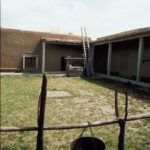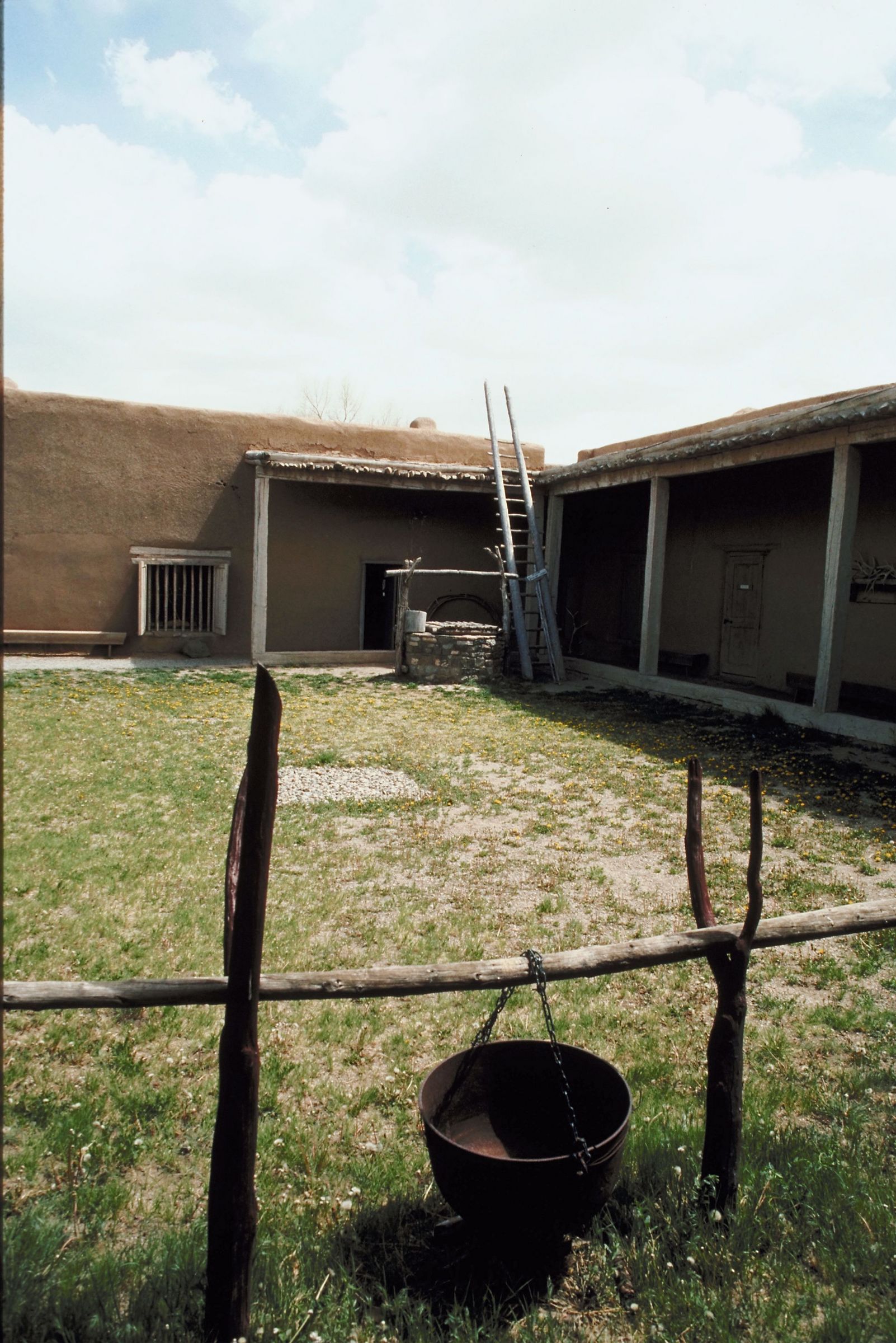Elijah and Elisha – 10
Like Samuel before him, Elisha seems to have moved around the land of Israel in a circuit, ensuring that God’s message was available to as many as possible. On these journeys he passed through Shunem on several occasions. Shunem was a town in the north of the land, in the territory of the tribe of Issachar.
A Home from Home
There was a woman living there who was obviously hospitable, persuading Elisha and his servant Gehazi to stay with her, and eat a meal with her. She is described as ‘notable’ or ‘wealthy’, and probably provided with Elisha with a more comfortable place to stay than some of the other homes he would visit.
After one of the visits, the woman suggested to her husband that they should build a room especially for Elisha to stay in. They would build it on the flat roof of their house and furnish it with a bed, table, chair and lamp, providing everything which the prophet might need for his stay. Presumably they would still provide his meals whilst he was with them. It seems to have been readily agreed, and the next time Elisha came, he was able to find quiet sanctuary in the newly constructed room.
Such generosity must be rewarded, so Elisha told his servant Gehazi to speak to the woman:
He said to him, “Say now to her, ‘Look, you have been concerned for us with all this care. What can I do for you? Do you want me to speak on your behalf to the king or to the commander of the army?’” She answered, “I dwell among my own people” (2 Kings 4:13).
Clearly this was a lady who had no ambition to stand out from the place where she lived, no desire for honour. Gehazi realised that there was one thing missing in her life. She had no children, and her husband was old, presumably older than the woman herself. Had she begun to accept that this was a childless marriage?
A Son is Born
So he said, “Call her.” When he had called her, she stood in the doorway. 16 Then he said, “About this time next year you shall embrace a son.” And she said, “No, my lord. Man of God, do not lie to your maidservant!” (v15-16).
This faithful woman was overcome with joy and could scarcely believe the good news.
It was just as Elisha had said. The following year, during the spring time she gave birth to a son, as the prophet had said. The miracle not only answered a long-felt need for this faithful couple, it also demonstrated again that Elisha was a true prophet of God. It was a test God Himself had established with Moses.
And if you say in your heart, ‘How shall we know the word which the Lord has not spoken?’— when a prophet speaks in the name of the LORD, if the thing does not happen or come to pass, that is the thing which the LORD has not spoken; the prophet has spoken it presumptuously; you shall not be afraid of him. (Deuteronomy 18:21-22).
Disaster!
There is a gap in the account, until the boy had grown. It was the time of harvest, and he went out to help his father amongst the reapers. It would be hot, and he seems to have been overcome with some form of sun or heatstroke. He said to his father, “Oh, my head, my head!”(v19).
The father sent one of his servants to take the boy back to his mother, and she sat with him on her lap until midday, when he died. It must have been a terrible moment for the mother. Childless for so long, now her only son was taken from her. It was a moment when she was able to demonstrate her resourcefulness. Laying the dead child on the bed in Elisha’s room, she gently closed the door and asked her husband for a servant and a donkey so that she could ride to meet Elisha. She refused to explain why she needed to go. We are not told how she knew where to find Elisha, but find him she did, at Mount Carmel. This would be a long ride, over twenty miles.

Elisha had seen her coming, and sent Gehazi to meet her, but she brushed aside his questions until she came face to face with the man of God, catching hold of his feet. Gehazi tried to stop her doing this, but Elisha stopped him. He could see the bitter distress in her face but God had hidden the cause from him.
A few words were enough: “Did I ask my lord for a son? Did I not say, ‘Do not deceive me?'” (v28).
Elisha realised what had happened, and they set off back to Shunem, Gehazi going ahead with Elisha’s staff. Gehazi had been told that when he came to Shunem, he was to lay the staff on the face of the child. The original plan had been for the woman to accompany Elisha, but she was determined and went ahead with Gehazi.
When they came to Shunem, Gehazi did as he had been instructed, laying his staff on the face of the dead boy. But there was no response, so sound or sign of life. The boy must have been dead for some time by now, the woman’s journeys to Carmel and back, would have taken several hours. Did they travel through the night, or wait for the following day to dawn?
A little despondent, the servant turned back to meet his master, to tell him, “The child has not awakened” (v31).
The Power of Life
When Elisha came to the house and saw the child on his bed, he went in and closed the door. With just two of them present, Elisha began with prayer. Then he did as Elijah had done in Zarephath: he lay on the boy, with his hands on the boy’s hands, eyes on his eyes, mouth on his mouth. It might have looked like mouth-to-mouth resuscitation, but it was not. This boy was dead, and a miracle was needed.
The boy’s body began to get warm, Elisha moved and walked around the house before repeating the process. Suddenly the boy sneezed seven times and opened his eyes. Elisha called Gehazi, presumably waiting just outside the room, telling him to summon the woman. When she came, Elisha’s instruction was very brief: “Pick up your son” (v36).
The woman fell once more at Elisha’s feet, this bowing to the ground in gratitude. She picked up her son once more and left Elisha and Gehazi in the room she had had built for them.
What is especially interesting is that the boy apparently had nothing to say. Apart from sneezing, nothing is recorded. He has nothing to say about what it was like to be dead. All we can infer from this is that he saw nothing, heard nothing, experienced nothing. He was totally unconscious.
A little after this, Elisha was called on to perform another miracle. During a famine a group of the sons of the prophets were making stew from any vegetation they could find. When they had boiled a large potful, they discovered that there was something poisonous in the stew, and appealed to Elisha to help:

Man of God, there is death in the pot! (v40).
Elisha instructed them to bring him some flour, which he threw into the pot. Now the stew was safe, and they were all able to eat and have some left over. Once again Elisha was shown to be a man of miracles, a true prophet of God.


